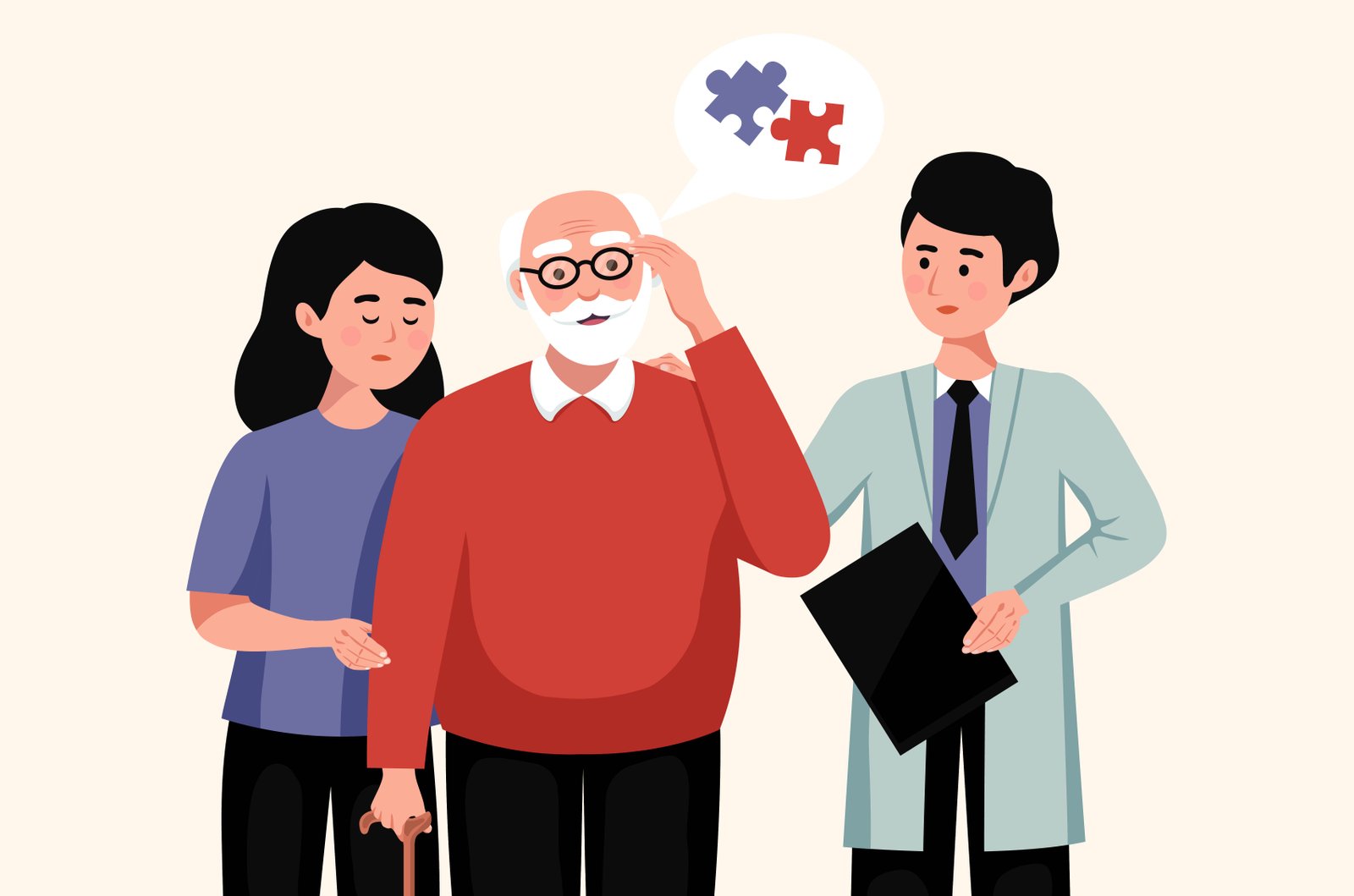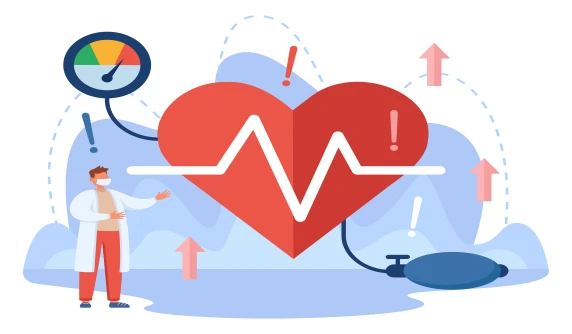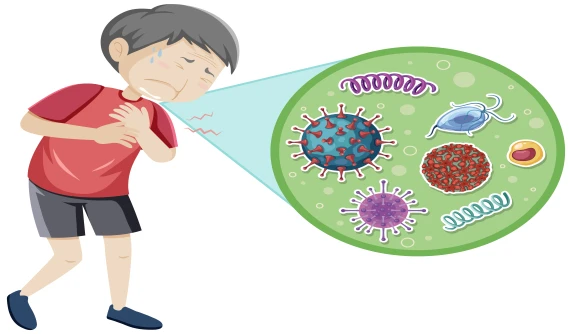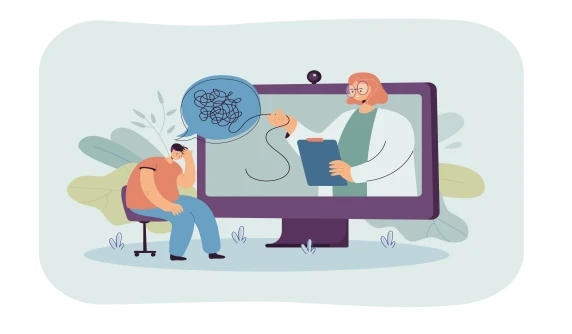
How to recognize the early signs of dementia or Alzheimer's in a loved one.
It's normal to occasionally struggle with vocabulary or to forget where you've put items. However, persistent problems with memory and daily functioning could indicate a more serious condition.
What is dementia?
All brain abnormalities that result in a loss of functioning that interferes with day-to-day functioning are together referred to as dementia .
It can impair one's ability to focus, pay attention, speak, solve problems, and perceive visual stimuli. A person with dementia may find it difficult to control their emotions, and it may even cause personality changes.
The most common form of dementia , Alzheimer's disease, is thought to affect 6.7 million Americans, according to 2023 data from the Alzheimer's Association, while many experts believe the actual number is far higher.
Furthermore, by 2050, its incidence is expected to increase. According to estimates from the World Health Organization, around 55 million individuals worldwide suffer from dementia .
When someone exhibits symptoms of dementia , it's critical to consult a medical professional who can do testing and make a diagnosis. It is important to rule out a number of disorders that can induce dementia -like symptoms initially.
These conditions include common infections and vitamin deficiencies, both of which are generally curable.
If the diagnosis is dementia , you should make plans for how you will provide care or seek treatment, particularly if the illness worsens.
10 warning signs of dementia
Keep an eye out for the following symptoms:
1. Difficulty with everyday tasks: According to the Alzheimer's Association, while mistakes are inevitable for everyone, those suffering from dementia may find it more and more difficult to perform tasks like following a recipe when cooking or keeping track of monthly expenditures.
They might also struggle to focus, take a lot longer to do things, or have difficulty completing them.
2. Repetition: The Cleveland Clinic states that repetitive questions or retelling the same account of a recent occurrence are typical signs of mild to moderate Alzheimer's disease.
3. Communication problems: Keep an eye out for signs that a loved one is having difficulty following or participating in discussions, stopping suddenly in the middle of a thought, or having difficulty coming up with words or object names.
4. Getting lost: Dementia patients may experience problems with their vision and spatial awareness. According to the Mayo Clinic, that can show up as issues like getting lost when driving.
5. Personality changes: It is important to take notice of a loved one if they start acting strangely tense, perplexed, afraid, or suspicious, or if they snap quickly and appear depressed.
6. Confusion about time and place: It's a warning sign when someone loses track of where they are or how they got there.
Disorientation with time, such as frequently missing the day of the week, is another concerning symptom, according to Jason Karlawish, M.D., a neurologist, academician at the University of Pennsylvania Perelman School of Medicine, and codirector of the Penn Memory Center.
7. Misplacing things: As per the Alzheimer's Association, an individual suffering from dementia could miss goods and find it difficult to trace back their movements to locate them.
8. Troubling behavior: Pay note if your family member appears to be neglecting their hygiene and grooming, or if they seem to be handling money with ever-increasing imprudence.
9. Loss of interest, or apathy: While occasional social distaste is one thing, a sudden and consistent loss of interest in friends, family, work, and social gatherings is a red flag of dementia .
Apathy may even be an indicator that someone is moving from moderate cognitive impairment (MCI), which is a term for memory loss or thinking difficulties that are not as severe as dementia, to Alzheimer's disease, according to a 2023 study published in the Journal of Alzheimer's Disease. A higher risk of dementia develops in those with MCI.
10. Forgetting old memories: One of the first indications of dementia is frequently a chronic loss of memory.
Different Types of Dementia
The most common causes of dementia are these illnesses. Alzheimer's and vascular dementia are two examples of mixed dementia that can affect a person.
-
Alzheimer’s disease: Amyloid plaques, twisted fibers, and a loss of nerve cell connections are the hallmarks of Alzheimer's disease. The brain region involved in memory formation, the hippocampus, is where damage first shows and then gradually spreads.
-
Lewy body dementia : Lewy bodies, or abnormal protein deposits in the brain, alter brain chemistry and cause issues with behavior, mood, movement, and thought processes.
The primary reason for dementia in individuals aged 65 and below is often the degenerative harm to the frontal and temporal lobes of the brain.
Indications may encompass lack of interest, challenges in communication, mobility or job-related tasks, emotional alterations, and impulsive or inappropriate conduct.
Where to find help
See your primary care physician as soon as possible if a loved one is exhibiting concerning symptoms. However, you'll need to consult a professional like a geriatric psychiatrist, geriatrician, or neurologist to receive a definitive diagnosis.
The National Institute on Aging suggests getting in touch with the neurology division at a local medical school if you are unable to locate one. Dementia -focused clinics are also available in several hospitals.
Experts will need to know about the patient's medical background and lifestyle, as modifiable risk factors, such as high blood pressure and smoking, can influence the likelihood of dementia . A family history may also.
How is dementia diagnosed?
Among the techniques physicians employ to assist in the diagnosis of dementia :
-
Cognitive and neuropsychological tests: Examine your memory, problem-solving abilities, arithmetic and language proficiency, and other mental functions.
-
Blood tests: are still mostly restricted to use in clinical settings and are comparatively new in the diagnosis of dementia . One might be ordered by doctors to check for beta-amyloid levels, which are a sign of Alzheimer's disease.
-
Brain scans: Imaging techniques like CT, MRI, and PET can detect alterations in the structure and function of the brain. These tests can also detect cancers, strokes, and other conditions that can lead to dementia .
-
Psychiatric evaluation: can ascertain whether the symptoms are being caused by or impacted by a mental health issue.
It can be particularly beneficial if someone exhibits symptoms before reaching the age of 60. The Mayo Clinic emphasizes that the early-onset variant of Alzheimer's is closely associated with an individual's genetic makeup.
It is advisable to consult with a genetic counselor both prior to and following the testing process.




